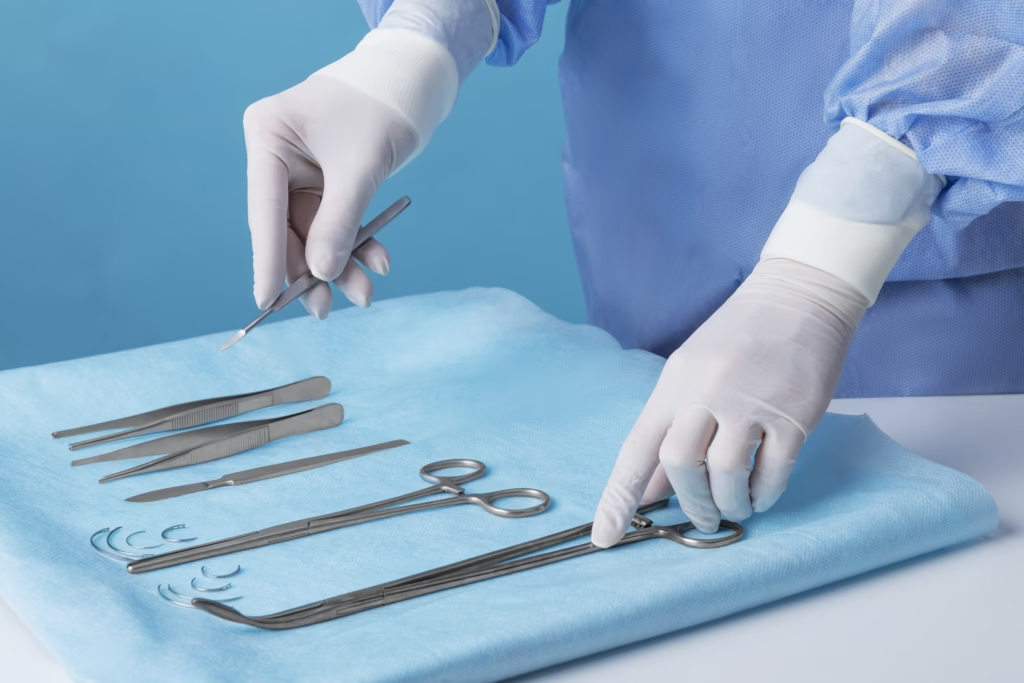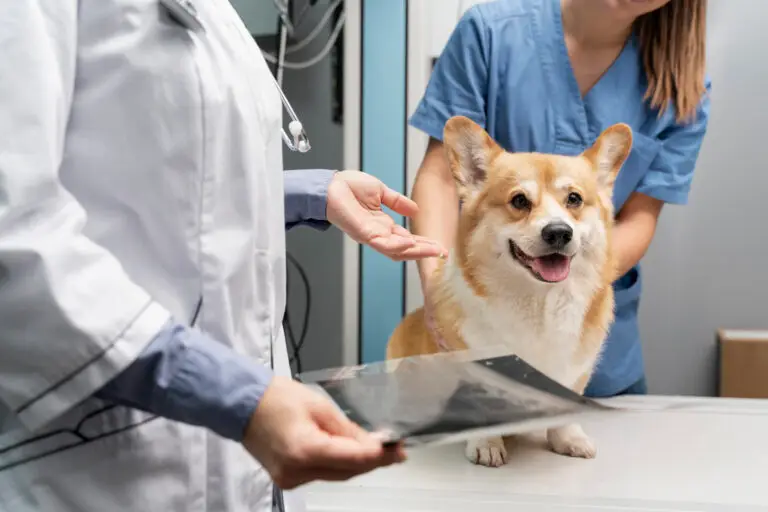Which Surgical Tools Are in High Demand Among Small Clinics?
Table of Contents
Introduction
Small clinics in India are growing rapidly, especially in tier 2 and tier 3 towns.
These healthcare MSMEs offer outpatient care, minor surgeries, and first-level emergency support.
But to run smoothly, they need the right surgical tools.
What kind of tools are truly essential?
What’s in high demand among small clinics right now?
If you’re a medical supplier or distributor, knowing this can help you stock smart and serve your clinic customers better.
In this article, we’ll explore the most needed surgical tools, where the demand is growing, and how you can align your inventory with what healthcare MSMEs really want.
1. What are the top essential surgical tools small clinics need for daily procedures in 2025?
Small clinics across India often handle outpatient care and minor surgical procedures.
For this kind of work, they don’t need heavy machinery or high-end robotic systems.
What they do need are reliable, everyday surgical tools that doctors and nurses can use easily and quickly.
So, what are the top essential surgical tools every small clinic should have in 2025?

1. Scalpels
Scalpels are small, sharp knives used to make clean incisions.
Every clinic performing minor surgeries like cyst removal or abscess drainage must keep a set of sterilized scalpels in stock.
Single-use blades are becoming more popular for infection control.
2. Surgical Scissors
Used for cutting tissues, bandages, and sutures.
Clinics usually stock both straight and curved scissors.
The Mayo and Metzenbaum scissors are two common types.
Scissors are used almost daily in general dressing and wound care.
3. Forceps
These are like surgical tweezers.
Doctors use them to hold, pull, or pick up tissues and other materials during procedures. Clinics generally stock toothed, non-toothed, and artery forceps.
They’re essential in wound cleaning, suturing, and dressing.
4. Needle Holders
These are special clamps used to hold needles while stitching up a wound.
Without a needle holder, accurate suturing becomes difficult.
They’re especially helpful in skin closure after small surgeries or injury repair.
5. Suturing Kits
A basic suturing kit includes sutures (threads), needles, and other tools needed to close a wound.
Clinics prefer ready-made kits that are sterile and can be used immediately during emergencies or routine minor operations.
6. Retractors
Although not needed for every case, small handheld retractors help hold open skin or tissue. This allows better visibility and access during small procedures.
Why These Tools Matter for Healthcare MSMEs
Small clinics must handle high patient volume with limited staff.
That’s why these handheld surgical tools are crucial.
They are simple, cost-effective, and used in hundreds of procedures from treating cuts and abscesses to removing foreign objects or draining pus.
They are also reusable (if properly sterilized) or available as disposable options, depending on the clinic’s budget.
Final Tip for Suppliers
If you’re selling to small clinics or healthcare MSMEs, always keep a ready stock of these basic tools.
Clinics often prefer combo packs or bundled surgical kits that save time and money.
2. Which diagnostic tools do small clinics frequently order along with surgical instruments?
Along with surgical instruments, small clinics also need diagnostic tools that help doctors check a patient’s vital signs and overall condition before or after a procedure.
These tools are used every day and are just as important as scalpels or sutures.
Let’s look at the most commonly ordered diagnostic tools by small clinics in India.
1. Stethoscope
This is the most basic and essential tool for every doctor.
It’s used to listen to the heart, lungs, and internal sounds.
Many small clinics order 2–3 stethoscopes at a time, especially during new doctor hiring or clinic expansion.
2. Blood Pressure Monitor
Checking blood pressure is routine in almost every visit.
Clinics use digital or manual BP monitors.
The digital ones are easier for staff to use and are often bundled in starter kits along with thermometers and oximeters.
3. Pulse Oximeter
This small device checks a patient’s oxygen level and pulse rate.
It became very popular during COVID-19 and continues to be in demand, especially in general practice and small nursing homes.
4. Thermometer
Clinics need digital thermometers to check body temperature quickly.
Infrared forehead thermometers are also common now due to hygiene needs.
5. Glucometer
Not all clinics stock this, but general practitioners, diabetologists, and even dentists use it occasionally to check blood sugar levels before certain procedures.
It’s a good upsell item for diagnostic tool bundles.
6. Otoscope and Ophthalmoscope
These tools are used to check the ears and eyes.
While not in every clinic, they are common in ENT practices or multi-specialty clinics.
Many small clinics prefer basic combo units that offer value for money.
Why These Tools Are Often Ordered Together
When a clinic orders surgical tools, it usually also needs diagnostic tools.
Before performing any minor procedure like suturing or incision and drainage, the doctor checks BP, pulse, and sometimes oxygen levels.
That’s why suppliers who offer bundled kits, surgical + diagnostic, see better sales.
For example:
- A minor surgery kit can include forceps, a scalpel, scissors + a stethoscope, a BP machine, and an oximeter.
- A new clinic setup pack can include all daily-use diagnostic tools along with a basic set of surgical instruments.
Supplier Tip
If you’re selling to small clinics or healthcare MSMEs, always offer combo deals or value packs.
It makes purchasing easier for the clinic and helps you build repeat orders.
Clinics like convenience and trust vendors who deliver complete solutions, not just one-off tools.
3. Are single-use surgical instruments in demand for infection control in small clinics?
Yes, single-use surgical instruments are becoming more popular among small clinics in India, especially those that handle a high number of OPD procedures and wound care cases.
Let’s understand why this trend is growing and what it means for suppliers and healthcare MSMEs.
Why Single-Use Surgical Tools Are in Demand
1. Infection Control
Today, infection prevention is a top concern, even in small clinics.
Reusable instruments require proper sterilization using autoclaves, disinfectants, and trained staff.
This can be costly and time-consuming.
Single-use tools reduce this burden.
Once used, they are simply discarded. No need for sterilizing.
No risk of contamination between patients.
This is a big reason why doctors prefer disposable forceps, scalpels, and scissors for routine use.
2. Rising OPD Procedures
Minor procedures like abscess drainage, suturing, incision and drainage, dressing changes, or wart removal are now common in small setups.
These don’t require an OT. But they still need clean, safe tools.
In such cases, disposable surgical kits are perfect. Many clinics stock pre-packed sets that include:
- A sterile disposable scalpel
- Forceps
- Gauze
- Gloves
- Drapes or dressing material
These are especially useful for clinics in semi-urban areas or those without a full sterilization setup.
3. Cost vs Convenience
While disposable tools may seem more expensive per unit than reusable ones, the cost savings on sterilization, staff time, and infection-related risks make them worth it for many clinics.
In fact, some vendors now offer low-cost disposable kits targeted specifically for healthcare MSMEs in Tier 2/3 cities.
These are very attractive to general practitioners, dermatologists, and even dental clinics for small surgical procedures.
Common Single-Use Surgical Items in Demand
- Disposable scalpels
- Plastic or stainless-steel single-use forceps
- Surgical dressing kits
- Sterile scissors
- Suture kits with needle and thread
- Single-use I&D packs
- Disposable biopsy punches (for skin procedures)
Supplier Tip
If you’re a supplier, you should:
- Bundle and sell single-use tools in procedure-specific kits.
- Offer packs in sets of 10–50 to make them affordable.
- Pitch them to clinics as “zero-maintenance, infection-safe” solutions.
These are perfect for small, busy clinics where the doctor wants to avoid the hassle of sterilization but still ensure safety.
4. How can suppliers identify and stock cost-effective surgical tools for clinics in Tier 2 and Tier 3 markets?
To serve small clinics in Tier 2 and Tier 3 cities, suppliers need to focus on stocking cost-effective surgical tools that are both durable and affordable.
These markets are very price-sensitive, but they also expect basic quality and safety.
Let’s break down how suppliers can choose the right products and maintain smart inventory.
1. Focus on Essential, Multi-Use Instruments
Small clinics usually don’t need complex or high-end surgical tools.
They need basic instruments that can be used in multiple procedures.
This reduces cost and inventory pressure.
Popular multi-use tools include:
- Scissors (straight and curved) – used in wound care, dressing, and minor surgery
- Thumb forceps – for holding tissue and dressing materials
- Needle holders – useful for any suturing tasks
- Surgical trays – reusable, used for instrument arrangement
Stocking these basics in different sizes and materials (like stainless steel or coated steel) helps meet different budgets.
2. Prioritize Reusables + Local Sterilization
Many clinics in Tier 2/3 towns prefer reusable tools, but they still need sterilization support. So, suppliers should also stock:
- Small tabletop autoclaves
- Sterilization pouches and trays
- Chemical disinfectants (Cidex, Betadine, etc.)
Offer these products as a bundle, for example, “starter kits for general practice clinics.”
This is helpful for first-time buyers starting a frugal setup.
3. Source from Indian Manufacturers or Distributors
To keep costs low, work with local surgical tool manufacturers in cities like:
- Delhi (Sadar Bazar)
- Ambala (Haryana)
- Mumbai (Bhuleshwar Market)
- Chennai and Coimbatore for south-based distributors
Avoid depending too much on imported tools unless required for special needs.
Indian-made instruments are affordable, easier to ship, and come with local service.
4. Stock Budget Packs and Bulk Offers
Many small clinics can’t afford large upfront purchases.
So suppliers should offer:
- Combo packs (e.g., 3 scissors + 2 forceps + tray)
- Small MOQ (minimum order quantity) units, even packs of 5 or 10 help in rural markets
- Bulk discounts for cooperatives or multi-clinic setups
Keep surgical kits that can serve multiple patient types, like general procedure packs, dressing kits, or suturing kits.
5. Use Feedback from Local Doctors
Regularly ask your buyers:
- Which tools are they using most often?
- Which brands or sizes do they prefer?
- Do they want pre-sterilized or bundled instruments?
This feedback can guide which stock to keep more of and what to reduce.
Summary
For Tier 2 and Tier 3 clinic markets:
- Focus on multi-use, reusable instruments
- Support them with sterilization tools and guidance
- Source locally to reduce cost
- Offer budget packs and low-MOQ deals
- Stay in touch with local doctors for evolving demand
This strategy helps suppliers grow sustainably while keeping small clinics well-equipped without overspending.
Great. Let’s now explore the next topic in detail:
5. Are Electrosurgical and Specialty Tools Becoming Popular in Small Clinics?
Yes, electrosurgical tools and specialty instruments are gradually gaining popularity even in small and mid-sized clinics, especially in Tier 2 cities and fast-growing towns.
As more clinics upgrade their procedures and expand their offerings, demand for such equipment is picking up.
Let’s understand why and how suppliers can adapt.
Why Are Electrosurgical Tools in Demand?
Electrosurgery uses electric current for cutting or coagulating tissue. It’s commonly used in:
- Minor surgeries (e.g., wart removal, bleeding control)
- ENT, skin, and gynec procedures
- OPD-based cosmetic treatments
Earlier, these tools were mostly seen in hospitals. But now, small clinics are adopting them due to:
- Patient demand for quicker, cleaner procedures
- Affordable compact models are now available
- Better awareness of minimally invasive methods
Tools include:
- Monopolar/Bipolar cautery machines
- Electrodes and reusable handpieces
- Portable units with a foot switch
What About Other Specialty Surgical Tools?
Apart from electrosurgery, small clinics also look for:
- ENT sets – for ear/nose cleaning and basic ENT surgeries
- Gynecology kits – speculums, uterine dilators, dressing forceps
- Ophthalmic micro scissors – in eye or eyelid OPD settings
- Dressing sets with artery forceps – for small surgical wounds
These are popular among specialist-run clinics (ENT, Gynae, Skin, Minor Surgery). Demand is lower than for general surgical tools, but margins are better.
What Should Suppliers Keep in Mind?
1. Stock Entry-Level Electrosurgical Units
Offer portable cautery machines priced between ₹8,000 to ₹25,000. These are compact and useful for general practitioners and minor OPD procedures.
2. Provide Training or Demo Support
Some doctors may be hesitant to try new tools. Offer demo videos, PDF guides, or remote onboarding.
3. Bundle with Accessories
A machine is just the start. Include:
- Ground pads
- Electrodes
- Cables and a foot switch
This improves your average order value.
4. Offer EMI or Lease Option
Electrosurgical units can be expensive upfront.
Give options like BNPL, monthly EMI, or rent-to-own models.
Many NBFCs support this in the healthcare MSME space.
How to Market These Products?
- Target Tier 2 clinics that are expanding or adding new departments
- Highlight use-cases (e.g., wart removal in dermatology, gyne cauterization)
- Use doctor referrals to demonstrate safety and success
- List them as “clinic upgrade kits” with optional training
Final Thoughts
While not every small clinic will need advanced tools right away, demand is clearly growing.
Suppliers who adapt early by stocking, bundling, and offering support for electrosurgical and specialty tools will build long-term trust.
Conclusion
Small clinics across India are steadily upgrading their surgical capabilities.
From basic instruments like scalpels, scissors, and suturing kits to diagnostic tools such as stethoscopes and pulse oximeters, the demand is strong and growing.
With rising patient loads and a shift toward minor OPD procedures, many are now preferring single-use surgical tools for infection control.
There is also increasing interest in cost-effective specialty tools like cautery machines and ENT sets, especially in Tier 2 and Tier 3 towns.
Suppliers must stay updated on these evolving trends.
Bundling surgical tools with consumables, offering EMI plans, and stocking affordable reusable instruments are key ways to serve this market better.
Whether you’re a clinic owner or a healthcare supplier, stocking the right tools at the right price will improve service quality and build business trust in 2025 and beyond.
FAQs
Q1. What are the most essential surgical tools needed by small clinics?
Scalpels, forceps, scissors, suturing kits, and gloves are daily-use tools every clinic needs for basic procedures.
Q2. Are single-use surgical tools preferred in small clinics?
Yes. Due to infection control needs and OPD volume, many clinics are shifting to disposable items like blades, gloves, and syringes.
Q3. Where can clinics source affordable surgical tools in India?
Suppliers like Sadar Bazar (Delhi), local B2B dealers, DentalKart, or Medikabazaar offer bulk and low-MOQ options.
Q4. What diagnostic tools should be bundled with surgical instruments?
Stethoscopes, BP monitors, pulse oximeters, and thermometers are frequently ordered together for patient monitoring.
Q5. Are advanced tools like electrosurgical units worth stocking for small clinics?
Yes. Clinics doing OPD surgeries or dermal procedures now seek cautery units and other compact devices as part of their expansion plans.
Also Read,
- The Ultimate Guide: Working Capital Loans for Small Business (MSMEs) in 2025
Understanding the Impact of Payment Terms on Working Capital for Clinics
How Poor Inventory Management Hurts Working Capital in Pharmacies.
Want a Better Business Credit Score? Small Pharmacies Can Now Use UPI & Cards to Build It
Want a Better Credit Score? Use Small Daily Payments to Build Your CBIL (For Clinics & Pharmacies)
Case Study:How a Small Clinic Improved Its Working Capital Management





